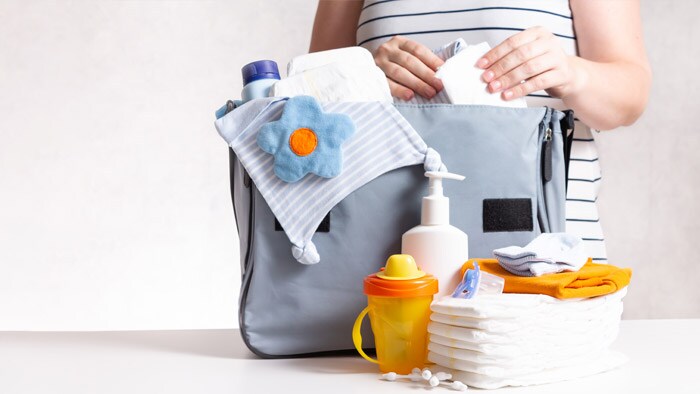Reading Time: 5 Min
Preparing for life with a baby
You’ve installed the car seat and assembled the crib. You've washed all of the onesies and vests, and have stocked up on diapers. Now what? What else can you do to prepare for your baby’s arrival?
Try this exercise:
Draw a circle on a sheet of paper and divide it into 24 slices. Now think about all the ways you spend your time each and every day. Eight hour workday? Shade in eight slices of pie. A regular eight hours of sleep – shade it in. Showering, fixing meals, exercising, washing up, etc. Consider all the ways you spend your time and record them on your pie chart. Ask your partner to do the same on their own pie chart.
Imagining life with a baby
Now imagine life with a baby. How much time will baby care take? Take infant feeding, for instance. If you’re breastfeeding, expect your newborn to eat eight to 12 times each day (maybe more!). If there are 12 feeds a day, and each feed takes on average 30 minutes (and that’s the low end of average), you’ll be spending 6 hours a day breastfeeding. Even if you’re formula feeding, preparing bottles, cleaning them, and actually feeding the baby takes time, too.
How will your pie chart need to change to accommodate this? What about diaper changing? Expect to change a napp with every feed – if you figure 12 per day at five minutes per change (once you get good at it), that’s another hour there. Add in clothing changes, comforting, putting baby to sleep, burping, etc. Add that all to your pie.
Sharing the load
Discuss this exercise with your partner, and work on a system for who will do what and when. Can your partner take over some duties? Think about what will be essential in the beginning – sleep and food (for baby and for you!). Pare down your day to these activities, at least for the first few weeks.
Sleep deprivation is real
Sleep deprivation is the number one hurdle all new parents face. Babies sleep a lot, but they wake a lot, too, and at the most inconvenient times (like at night when you’re trying to sleep). While you may be mentally prepared for this – everyone tells you it’s coming – the reality can be quite challenging. Try to sleep – or at least rest – when baby sleeps.
Limit the number of visitors
Limit visitors in the early days, and ask those who stop by to give you a hand with a load of laundry or the dishes in the sink.
Take care of yourself
Eat well, drink enough water, and exercise daily – these will help minimize the effects of the lack of sleep. Most of all, keep in mind that all babies wake often, and that it’s a protective mechanism they will grow out of when they are developmentally ready.
The fourth trimester
Consider the first three months with a new baby your fourth trimester. Your baby will appreciate a womb-like environment: low lighting, warmth, being near you, and feeding on demand. By meeting these needs, your baby will have a sense of security.
Caring for your baby this way will also help you learn to parent. You’ll learn all of your baby’s subtle cues, their likes and dislikes, and more. Keep in mind that you will need time to recover, too. So allow the fourth trimester to be your time to recuperate. Lower your expectations, and let go of the to-do list. Enjoy your baby, and be gentle on yourself as you learn to mother.






